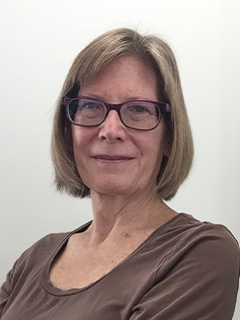HOW CAN WE HELP YOU? Call 1-800-TRY-CHOP
In This Section
'The Data Will Tell You Where to Go': Q&A With Kathleen Sullivan, MD, PhD

Kathleen Sullivan, MD, PhD
Editor's Note: Welcome to our monthly Faculty Spotlight series, in which we sit down with faculty members at Children's Hospital of Philadelphia Research Institute to learn more about their research and roles. Through these spotlights, our readers meet the diverse, dedicated, and distinctive individuals who lead our research community in our mission to improve children's health. It's a new round of spotlights, and this time, we're asking our featured scientists about how they encourage diversity, equity, and inclusion within their labs. In this Q&A, we meet Kathleen Sullivan, MD, PhD, chief of the Division of Allergy and Immunology, who has been at CHOP for 29 years. Stay tuned for more from our Faculty Spotlight series throughout this year!
Can you tell us a little about your research specialty?
I'm an immunologist, and the immune system does not form a solid organ — it circulates around the body and thereby impacts nearly all the organs in some way. Sometimes we say the immune system is invisible because you can't palpate it or listen to it, but I prefer to think of it as the halo around every organ.
I'm quite fortunate to be able to do a lot of different things within my specialty, which surely keeps me on my toes. My current interests are a little different from those that have been my calling card over the years. I run the Undiagnosed Diseases Network at CHOP, which attempts to help children who have had a long diagnostic journey. This has been a way to leverage the amazing tools available at CHOP, including genetic, metabolomic, immunologic, and epigenetic studies, to help kids and their families in a more focused way. I ended up with this job because of my experiences in the Very Early Onset Inflammatory Bowel Disease Program run by Judith Kelsen, MD, and the Dysregulated Immune Response Team, run by Ed Behrens, MD, both of which use genetic tools to help patients.
I will soon direct an immunology-focused genetic diagnostic and clinical registry program recently funded by the National Institutes of Health, called USIDNET, that also capitalizes on structural strengths here at CHOP.
Why did you choose to focus on that specialty?
I picked immunology as a specialty not from any personal experience, but because I thought it would be at the forefront of gene therapy. It was, but ultimately, I never worked directly in the field of gene therapy. I was engaged by other questions along the way.
Please describe a current or recent research project (or projects) that you are excited about.
Besides what I mentioned above, my other current interest research program is more closely aligned with my journey in immunology. About 25 years ago, I met a little girl who had long standing ulcers on her legs. These had been biopsied and cultured extensively and had not responded to any intervention. Eighteen years later, we found that a virus could cause chronic inflammation. This is not typical behavior for viruses since they usually cause acute disease and then go away. I have spent the past six years trying to understand how this virus causes disease, why immunodeficient people get a different clinical disease and, importantly, how we can treat this condition.
What are the long-term research questions you hope to answer?
How can we better harness technology to help diagnose patients more quickly? And, as an immunologist, how can we more rapidly discern the treatment most likely to be effective for each patient? Patients are wonderfully and perplexingly different. Almost all of our data is on a whole population. The patients need to know what will work for them the best, and we are often still at the level of trial and error in my specialty.
How do you support diversity, equity, and inclusion among your research team?
I want to be as inclusive as possible and recognize the uniqueness of each person's best work style. We continue to use remote work, which can be especially useful for people with families or who are trying to get advanced education. My team includes people with different religious backgrounds, immigrants, people of different ancestries, and people of markedly different ages, which brings a broad perspective to our team and approach to projects. My lab proudly supports summer diversity programs and through those, I have always strived to help people achieve their own personal goals and recognize that varied experiences enrich all of us.


